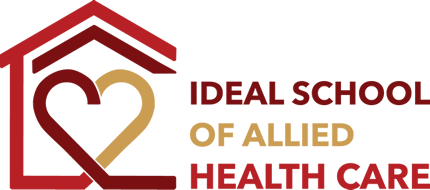
10 Reasons to Become a Medical Assistant
Is a Medical Assistant Career for You?
Becoming a medical assistant doesn’t take long, and the job is rewarding in so many ways. If you have a passion for the medical field but aren’t sure where to begin, a career as a medical assistant may provide the right amount of immediate challenge and still serve as a stepping stone to greater rewards later on in your career.
1. Start Your Career Quickly
Becoming a medical assistant is a short path to get into the medical field. Our Medical Assisting program takes just 25 weeks to complete. Plus, you’ll get real world and hands-on training so you’re ready to jump into your job on day one.
2. You’re in High Demand
It’s not always easy to get a job. But when you’re a medical assistant, you’re in demand. In fact, this occupation is growing much faster than almost any other occupation. As baby boomers get older, they need more preventive medical services. We’re talking about 76.4 million people, or almost one-third of the U.S. population — and almost all of them will be involved in the healthcare system. That’s a big demand!
3. Certification Increases Your Marketability
Our Medical Assisting program follows a comprehensive academic curriculum that not only gives you the knowledge and skills to become a Medical Assistant, but you’ll also get certificates as Certified Medical Assistant Certification (CCMA), Certified Phlebotomy Technician (CPT), and Certified EKG Technician (CET). With credentials like this, you’re going to be very marketable.
4. This Career Makes a Difference
Well-trained and professional medical assistants make a huge difference in a patient’s hospital or clinic experience. Medical Assist have a lot of responsibility. On any given day, a medical assistant might administer medicine, help patients navigate complex insurance policies, and prep patients for examinations. Medical Assistants always use these examples as to why they’re so proud to be a part of this amazing profession.
5. Learn with Exciting and Applicable Classes
Medical Assistants are unique in that they straddle the line between administration and treatment. Medical assistant courses include classes such as physiology, patient care, sterilization techniques, and basic pharmacology. Classroom lessons on administrative tasks like insurance, HIPAA compliance, and medical billing and coding are equally important.
6. Less Stress…YES!
US doctors report high levels of stress due to their demanding jobs, with as many as 50% experiencing burnout symptoms within the previous year. Nurses are also highly stressed due to being understaffed and overworked.
Although medical assistant job duties aren’t completely free of stress, these allied healthcare workers have far less on their shoulders. Due to their wide range of training, Medical assistants have the opportunity to help doctors and nurses with a variety of tasks, which helps them to relieve some of those burdens.
7. Varied Working Environments
Whether you enjoy the fast pace of a surgical ward, general medical hospital, or trauma center, others may prefer the quieter setting of a private physician’s office. Smaller practices rely on their medical assistants to handle both administrative and clinical duties, while MAs at larger practices and hospitals tend to focus on one set of skills..
The beauty of it is that as a Medical assistant, you get to choose the environment that suits you best.
8. Training Others Can Be Part of Your Future
Ever thought of training other individuals into Medical assistants? There is a growing demand for trained medical assistants. That means there’s also an increased demand for the professionals who train them. If you enjoy interacting with people, this may be a great option to work towards.
9.You can choose to work 9-5…or NOT
For the many healthcare workers, it isn’t possible to enjoy the same time off as friends and family. Working night shifts or long hours is simply a way of life for many doctors, nurses, and emergency services workers.
As a Medical assistant you have a choice. If you aren’t comfortable working late shifts or your priorities shift in the future, you still have many options to find a more conventional working routine at a smaller clinic or private practice.
10. New Technology at the tip of your hands
The medical field is rapidly changing due to constant technological developments, from data storage to new monitoring tools, treatments, and artificial intelligence. Technology has a huge impact on healthcare and will only continue to grow.
Guess what? As a medical assistant, you’ll play a key role in applying these technologies to deliver more precise and personalized care.
